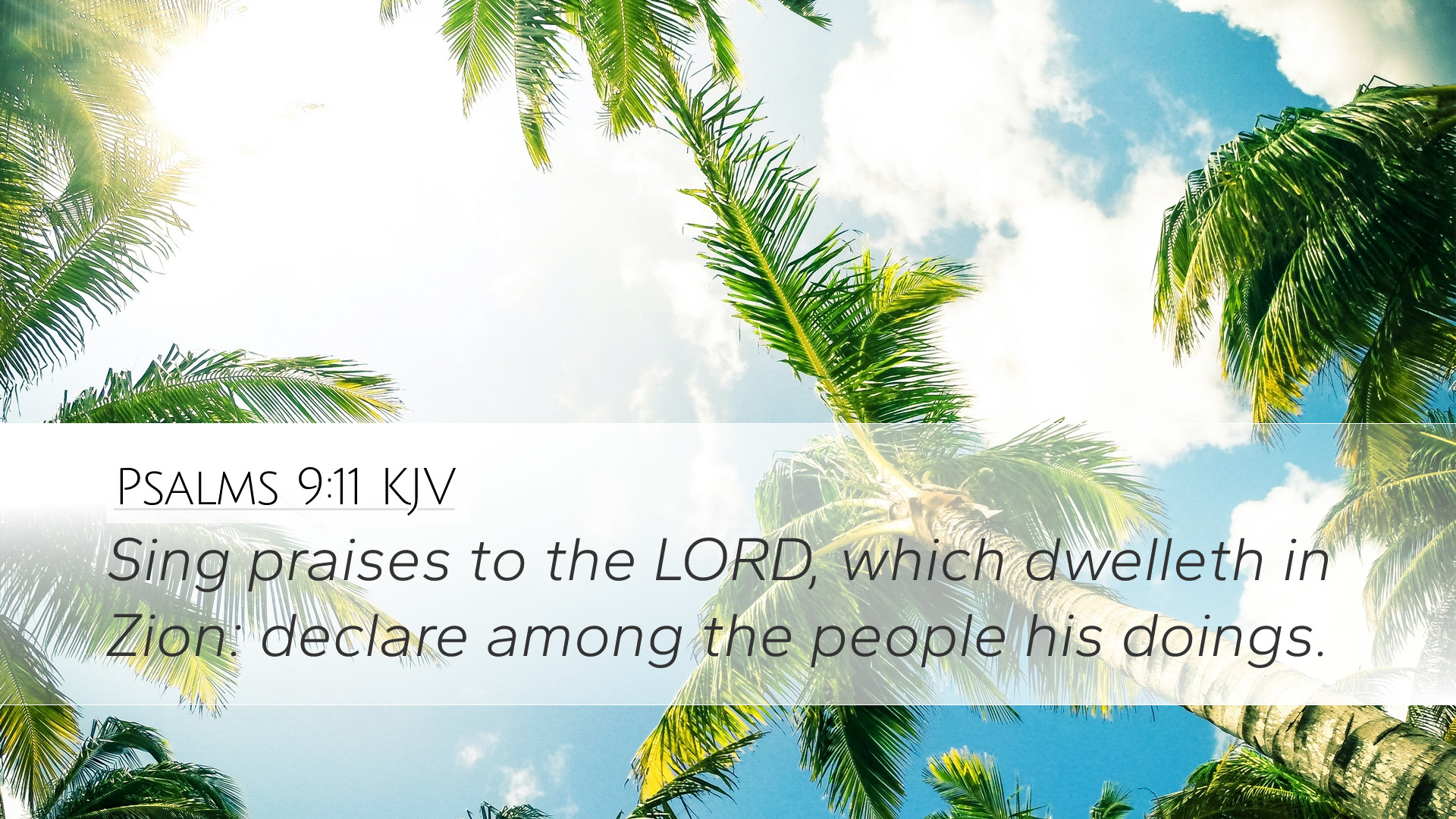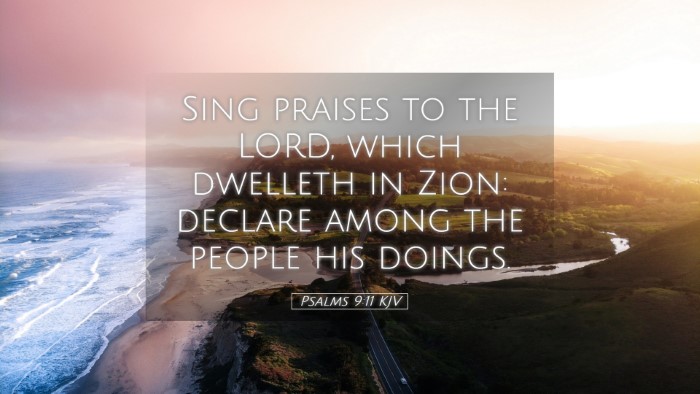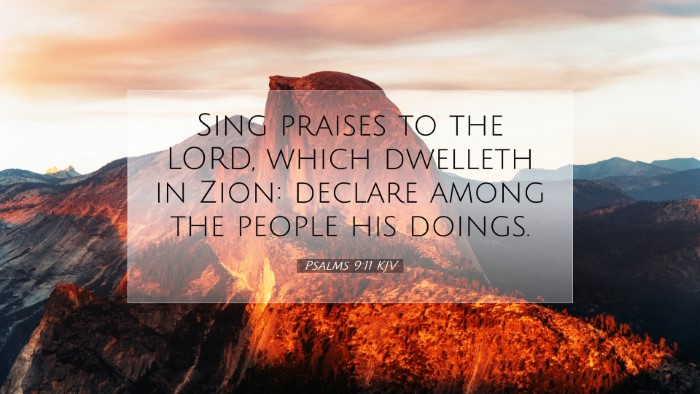Psalms 9:11 - A Study of Divine Praise and Justice
Bible Verse: "Sing praises to the Lord, who dwells in Zion! Tell among the peoples his deeds!" (ESV)
Introduction
The exploration of Psalms 9:11 involves a profound understanding of the nature of God as a sovereign ruler who exercises justice and deserves sincere praise from His people. The call to sing praises is not merely for worship but an acknowledgment of God's manifold works among the nations. This commentary synthesizes insights from esteemed public domain sources to unveil the depths of this verse.
The Exhortation to Praise
Matthew Henry observes that the act of worship is integral to the believer’s life, particularly in the context of remembrance of God's previous acts. He emphasizes that singing praises to the Lord is a form of declaring His glory and testimonies amongst His people. The emotional engagement in worship reflects not only personal gratitude but serves as a collective acknowledgment of God's greatness.
Albert Barnes further elaborates that this praise is directed towards God who 'dwells in Zion.' This geographical reference implies the presence of God among His covenant people. The exaltation of God is thus connected to His redemptive activity and protective nature, especially as He has revealed Himself in specific historical moments—demonstrating His faithfulness to Israel.
Communicating God's Deeds
Both Henry and Clarke assert the importance of testifying God's deeds to other nations. The mission aspect of this verse calls believers to actively engage in sharing the accounts of God's deliverance and acts of justice. Clarke emphasizes that the imperative to "tell among the peoples" is not optional; it is a command suggesting a responsibility to witness to God’s great works, therefore igniting the faith of others.
The act of sharing these testimonies is a vital reminder of God's faithfulness and serves to encourage both the speaker and the hearer. As stated by Henry, "It is the duty of the saved to proclaim the glory of their deliverer, which should be a joyful proclamation rather than a burden." This proclamation fosters a larger communal faith, uniting believers across generations and geographies.
The Context of Zion
The reference to Zion in this verse represents more than just a physical location; it embodies the theological truth of God's chosen dwelling place among His people. Barnes discusses how Zion represents the heart of God’s redemptive plan for humanity and underscores the permanence of His promise to Israel. It acts as a metaphor for God's ultimate sovereignty and presence.
When worshippers sing praises “who dwells in Zion,” they are acknowledging not only the sacredness of this place but also the continuous manifestation of God’s character—the just God who is actively involved in the affairs of the world through His people. Clarke mentions that this ‘dwelling’ suggests intimacy; God is not a distant deity but a near companion to those who seek Him.
The Call to All Peoples
Matthew Henry notes that worship should not be insular; it extends beyond cultural or geographical boundaries. The phrase "among the peoples" implies a commission to reach out to all nations, reinforcing the universal nature of God's Gospel. This aspect challenges local congregations to consider their role in global evangelism and the importance of sharing God's deeds widely.
Moreover, Barnes comments on the inclusivity of God’s revelation, pointing out that while Zion is a particular place, the testimony of God’s deeds transcends Israel and invites all humanity to acknowledge His greatness. The call is for all peoples to join in this celebration of divine justice.
The Nature of God's Deeds
The nature of ‘deeds’ referred to in this Psalm encompasses the myriad ways in which God interacts with humanity—providing deliverance, offering salvation, executing justice, and unfolding mercy. Albert Barnes emphasizes that these deeds are not merely historical but also contemporary; they shape the lives of believers today, requiring ongoing testimonies of God’s faithfulness.
Adam Clarke elaborates on the significance of remembering God’s past deeds as the framework for faith in future encounters. By revisiting these acts, believers find hope and assurance in God's character. Clarke writes, "The true sense of our praising God must be reflected in our lives as we remember His past interventions in our personal stories.”
Conclusion
Psalms 9:11 serves as an exhortation to all believers to participate in an act of worship characterized by joyful proclamation of God's works. This passage underscores the significance of community, remembrance, and the call for global evangelization. As Matthew Henry well states, the act of praising God is both a privilege and a duty that cultivates a deeper relationship with the Almighty. It is through the integration of these theological truths that pastors, students, theologians, and scholars can comprehend the multifaceted nature of worship as depicted in this verse.


